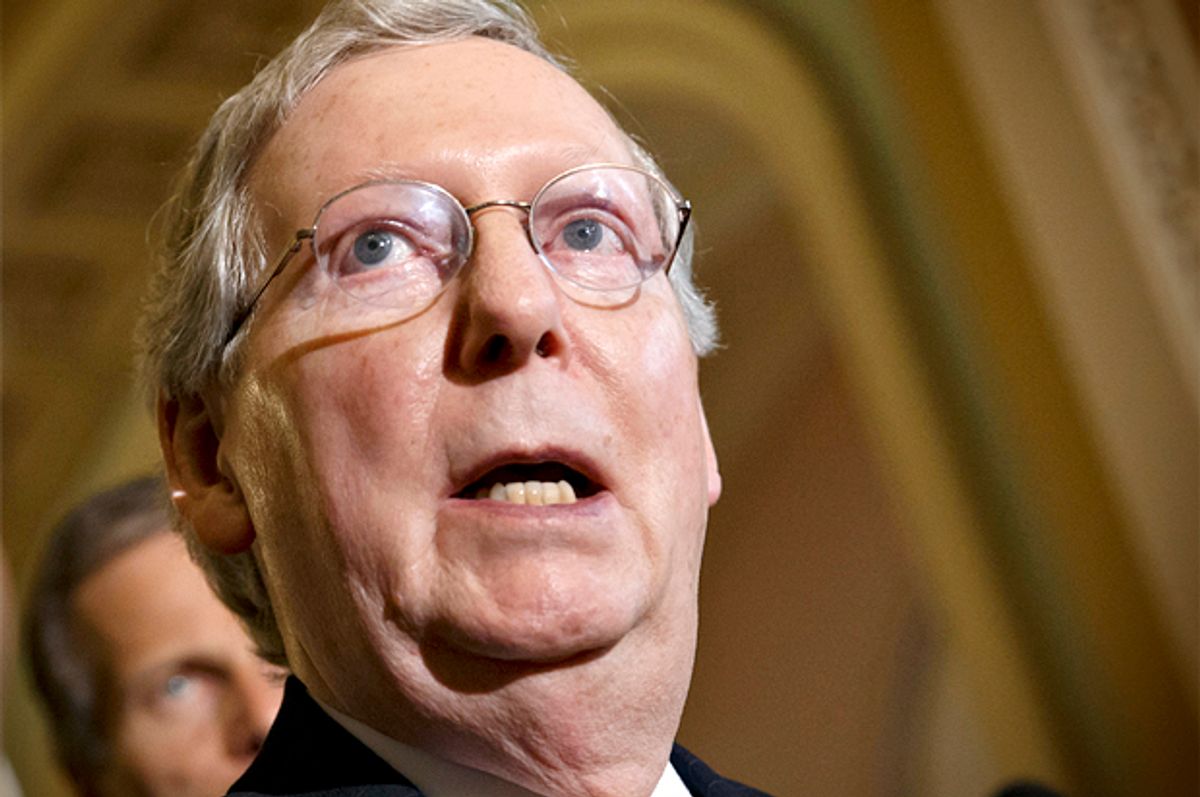Last week, Senate Republicans let the Paycheck Fairness Act advance for debate. This week, the same Republicans blocked the measure to ban retaliation against employees who share salary information and impose harsher penalties on employers who discriminate based on gender. No one is surprised. (Except maybe Charlie Brown. Charlie Brown generally seems pretty surprised every time Lucy pulls up that football.)
So the GOP that claims to be focused on "women's outreach" in advance of the 2014 midterms and "supports equal pay" is the same GOP that has now acted four times to block a measure that would bring transparency and some measure of accountability to employers who pay women less than men. Which is the same GOP that has consistently opposed increases to the minimum wage, locking millions of women into poverty. Which is the same GOP that is currently meeting with fast food executives to undermine the momentum behind labor organizers demanding decent wages.
But things aren't all bad. New data out from the Census Bureau reveals that, on average, women now make 78 cents on the dollar instead of 77 cents. That means that, on average, a woman working full-time, year-round earns just 22 cents less than her male colleagues for the exact same work. (Who wants to order the cake? Should I order the cake? I can order the cake.)
As Danielle Kurtzleben pointed out over at Vox, that new number "is not statistically different" than the 2012 estimate of 76.5 percent. (Who wants to cancel the cake? Should I cancel the cake? I can cancel the cake.)
The wage gap isn't going anywhere without structural change, and it only gets worse when you compare what black and Latina women make on the dollar. (That is, 64 cents and 54 cents, respectively. LGTBQ women face additional barriers to equal pay, and in many states don't have the basic job protections that allow them to hold down a job in the first place.)
How, then, do you think the persistence of the gender pay gap will be addressed at an upcoming GOP outreach event called Women2Women? “Women across the country like it when we come in and talk to them about their issues,” according to Sarah Chamberlain, who is the chief operating officer of the event's sponsoring organization, MainStream Advocacy. “And it’s saving money for the kids’ colleges, retirement, energy costs — things like that. … We are not touching the third rail, and they know that going in. We’re not here to talk about the social issues.”
Joining MainStreet Advocacy in not talking about "social issues" (like, one assumes, reproductive freedom, which also happens to be an economic justice issue) is Republican Rep. Cathy McMorris-Rodgers of Washington state, who earlier this year told CNN, "Republicans and I support equal pay for equal work." But like most of the GOP, McMorris-Rodgers does not specify what this support actually entails. She has a record of voting against the Lilly Ledbetter Fair Pay Act and the Paycheck Fairness Act but still, apparently, wants all women to have "the opportunity for a better life."
Where those opportunities will come from with the GOP consistently blocking structural reform is anyone's guess.

Shares